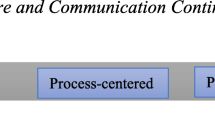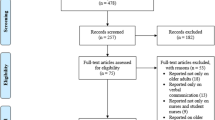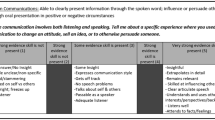Abstract
Written comments on residents’ evaluations can be useful, yet the literature suggests that the language used by assessors is often vague and indirect. The branch of linguistics called pragmatics argues that much of our day to day language is not meant to be interpreted literally. Within pragmatics, the theory of ‘politeness’ suggests that non-literal language and other strategies are employed in order to ‘save face’. We conducted a rigorous, in-depth analysis of a set of written in-training evaluation report (ITER) comments using Brown and Levinson’s influential theory of ‘politeness’ to shed light on the phenomenon of vague language use in assessment. We coded text from 637 comment boxes from first year residents in internal medicine at one institution according to politeness theory. Non-literal language use was common and ‘hedging’, a key politeness strategy, was pervasive in comments about both high and low rated residents, suggesting that faculty may be working to ‘save face’ for themselves and their residents. Hedging and other politeness strategies are considered essential to smooth social functioning; their prevalence in our ITERs may reflect the difficult social context in which written assessments occur. This research raises questions regarding the ‘optimal’ construction of written comments by faculty.
Similar content being viewed by others
References
Akmajian, A., Demers, R., Farmer, A., & Harnish, R. (2010). Ch. 9 Pragmatics. In A. Akmajian, R. Demers, A. Farmer, & R. Harnish (Eds.), Linguistics. An introduction to language and communication (Sixth ed., pp. 363–418). Cambridge, MA: MIT Press.
Bakker, J. (2007). Facework. In Blackwell Encyclopedia of Sociology. Blackwell.
Bonnefon, J.-F., Feeney, A., & De Neys, W. (2011). The risk of polite misunderstandings. Current Directions in Psychological Science, 20(5), 321–324. doi:10.1177/0963721411418472.
Brown, P., & Levinson, S. C. (1987). Politeness: Some universals in language usage (S. C. Levinson ed.). New York: Cambridge University Press.
Cohen, G., Blumberg, P., Ryan, N., & Sullivan, P. (1993). Do final grades reflect written qualitative evaluations of student performance? Teaching and Learning in Medicine, 5(1), 10–15. doi:10.1080/10401339309539580.
Danesi, M. (1993). Metaphorical competence in second language acquisition and second language teaching: The neglected dimension. In J. E. Alatis (Ed.), Georgetown University round table on languages and linguistics 1992: Language, communication and social meaning (pp. 489–500). Washington, DC: Georgetown University Press.
Dudek, N. L., Marks, M., Bandiera, G., White, J., & Wood, T. J. (2013). Quality in-training evaluation reports—does feedback drive faculty performance? Academic Medicine, 88(8), 1129–1134. doi:10.1097/ACM.0b013e318299394c.
Dudek, N. L., Marks, M. B., Wood, T. J., & Lee, A. C. (2008). Assessing the quality of supervisors’ completed clinical evaluation reports. Medical Education, 42(8), 816–822.
Eelen, G. (2014). A critique of politeness theory (2nd ed., Vol. 1). Oxon: Routledge.
Fraser, B. (1990). Perspectives on politeness. Journal of Pragmatics, 14, 219–236.
Fraser, B. (2010). Pragmatic competence: The case of hedging. In G. Kaltenbock, W. Mihatsch, & S. Schneider (Eds.), New Approaches to Hedging (1st ed., pp. 15–34). Bingley: Emerald.
Ginsburg, S., Eva, K. W., & Regehr, G. (2013). Do in-training evaluation reports deserve their bad reputations? A study of the reliability and predictive ability of ITER scores and narrative comments. Academic Medicine, 88(10), 1539–1544. doi:10.1097/ACM.0b013e3182a36c3d.
Ginsburg, S., Gold, W., Cavalcanti, R. B., Kurabi, B., & McDonald-Blumer, H. (2011). Competencies “Plus”: The nature of written comments on internal medicine residents’ evaluation forms. Academic Medicine, 86(10 Suppl), s30–s34.
Ginsburg, S., Regehr, G., Lingard, L., & Eva, K. W. (2015). Reading between the lines: Faculty’s interpretations of narrative evaluation comments. Medical Education, 49(2), 296–306. doi:10.1111/medu.12637.
Guerrasio, J., Cumbler, E., Trosterman, A., Wald, H., Brandenburg, S., & Aagaard, E. M. (2012). Determining need for remediation through postrotation evaluations. Journal of Graduate Medical Education, 4(1), 47–51. doi:10.4300/JGME-D-11-00145.1.
Ilott, I., & Murphy, R. (1997). Feelings and failing in professional training: The assessor’s dilemma. Assessment & Evaluation in Higher Education, 22(3), 307–316.
Kiefer, C. S., Colletti, J. E., Bellolio, M. F., Hess, E. P., Woolridge, D. P., Thomas, K. B., & Sadosty, A. T. (2010). The “good” dean’s letter. Academic Medicine, 85(11), 1705–1708.
Lye, P. S., Biernat, K. A., Bragg, D. S., & Simpson, D. E. (2001). A pleasure to work with: An analysis of written comments on student evaluations. Ambulatory Pediatrics, 1(3), 128–131.
McLaren, B. M., DeLeeuw, K. E., & Mayer, R. E. (2011). A politeness effect in learning with web-based intelligent tutors. International Journal of Human-Computer Studies, 69(1–2), 70–79. doi:10.1016/j.ijhcs.2010.09.001.
Mills, S. (Ed.). (2003). Chapter 2. Theorising politeness. In Gender and politeness (Vol. 1, pp. 57–120). Cambridge: Cambridge University Press.
Myers, G. (1989). The pragmatics of politeness in scientific articles. Applied Linguistics, 10(1), 1–35.
Patton, M. (Ed.). (2002). Designing qualitative studies. In Qualitative research & evaluation methods (3rd ed., pp. 209–257). Thousand Oaks, CA: Sage Publications, Inc.
Prince, E., Frader, J., & Bosk, C. (1982). On hedging in physician-physician discourse. In Linguistics and the professions: Proceedings of the second annual delaware symposium on language studies (pp. 83–97).
Salager-Meyer, F. (1994). Hedges and textual communicative function in medical English written discourse. English for Specific Purposes, 13(2), 149–170.
Wang, N., Johnson, W. L., Mayer, R. E., Rizzo, P., Shaw, E., & Collins, H. (2008). The politeness effect: Pedagogical agents and learning outcomes. International Journal of Human Computer Studies, 66(2), 98–112.
Watling, C. J., Kenyon, C. F., Zibrowski, E. M., Schulz, V., Goldszmidt, M. A., Singh, I., et al. (2008). Rules of engagement: Residents’ perceptions of the in-training evaluation process. Academic Medicine, 83(10 Suppl), S97–S100. doi:10.1097/ACM.0b013e318183e78c.
Author information
Authors and Affiliations
Corresponding author
Rights and permissions
About this article
Cite this article
Ginsburg, S., van der Vleuten, C., Eva, K.W. et al. Hedging to save face: a linguistic analysis of written comments on in-training evaluation reports. Adv in Health Sci Educ 21, 175–188 (2016). https://doi.org/10.1007/s10459-015-9622-0
Received:
Accepted:
Published:
Issue Date:
DOI: https://doi.org/10.1007/s10459-015-9622-0




